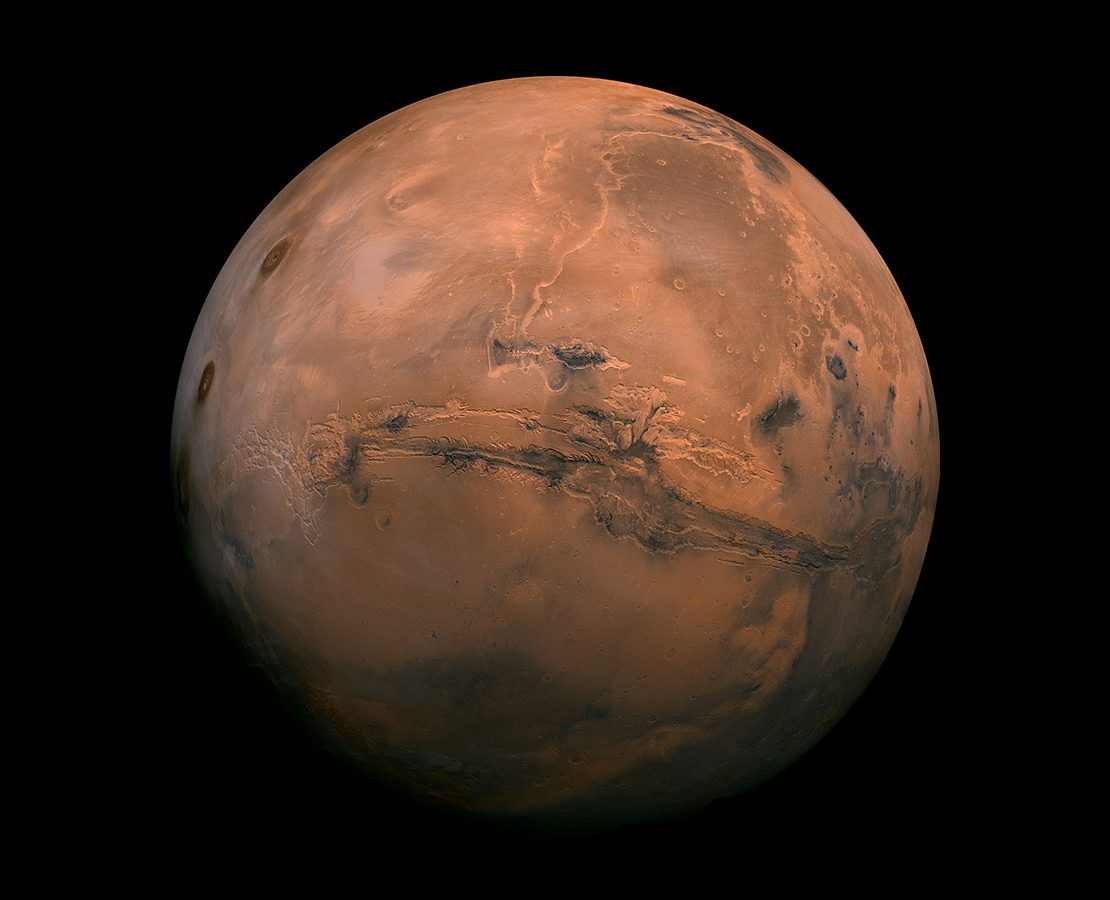NASA’s Jet Propulsion Laboratory recently announced some surprising findings: Mars has started spinning faster. Published in the journal Nature, analysis of data collected by NASA’s InSight Lander revealed that days on the red planet are getting shorter each year.
NASA’s InSight spacecraft met its end on the Martian surface in December 2022, but the valuable data it gathered during its four years of operation is currently being studied by scientists to uncover fresh insights about the characteristics of the planet. The study found that Mars‘ rotation on its axis is accelerating by about 4 milliarcseconds each year – corresponding to a shortening of the Martian day by a fraction of a millisecond per year. A milliarcsecond – basically is an incredibly tiny measurement that astronomers use to describe how far apart things are in space. So this incredibly subtle increase in speed might sound underwhelming, but it’s still unusual enough to give us some insights into the mysterious planet’s history.
Apparently, researchers are still unsure what is causing this speeding up of the planet’s rotation but there are some possible explanations. Ice accumulating on the polar caps of the planet could be one of the reasons. Researchers said the shift in a planet’s mass can cause it to accelerate a bit like an ice skater spinning with their arms stretched out, then pulling their arms in.
Scientists have also used this theory to explain why the Earth might have started spinning faster – which it did around August of last year. On a normal day, the Earth rotates at roughly 1,000 miles per hour, or 460 metres per second (as measured at the equator). On June 29, 2022, however, scientists measured the shortest day since records began in the 1960s – Earth had shaved 1.59 milliseconds off its usual time, and almost went on to do it again on July 26, when it knocked off 1.5 milliseconds. Apparently, Earth has actually been speeding up for a few years now. Though Mars’ increased rotation will probably not have any direct effects on Earth – but as space agencies prepare to establish colonies on the neighbouring planet, any new discoveries could have potentially groundbreaking implications.
“It’s really cool to be able to get this latest measurement – and so precisely. I’ve been involved in efforts to get a geophysical station like InSight onto Mars for a long time, and results like this make all those decades of work worth it,” InSight’s principal investigator, Bruce Banerdt of NASA’s Jet Propulsion Laboratory, said in a statement.
A radio transponder on the InSight lander and antennas collectively called the Rotation and Interior Structure Experiment (RISE) collected the data. RISE is the latest in the series of equipment that NASA sent to Mars, starting with twin Viking landers in the 1970s and the Pathfinder in the 90s. The upgrades added to it allow RISE to capture five times more accurate data than what was available for the Viking landers.





